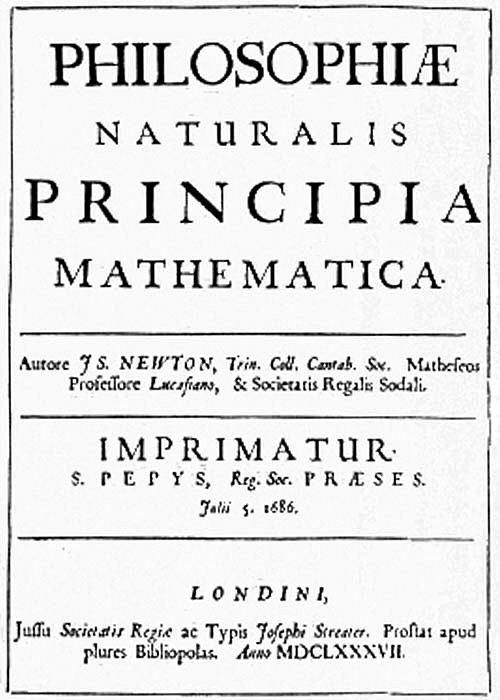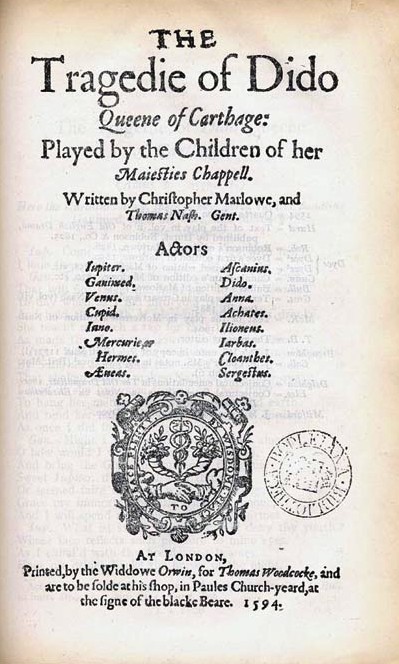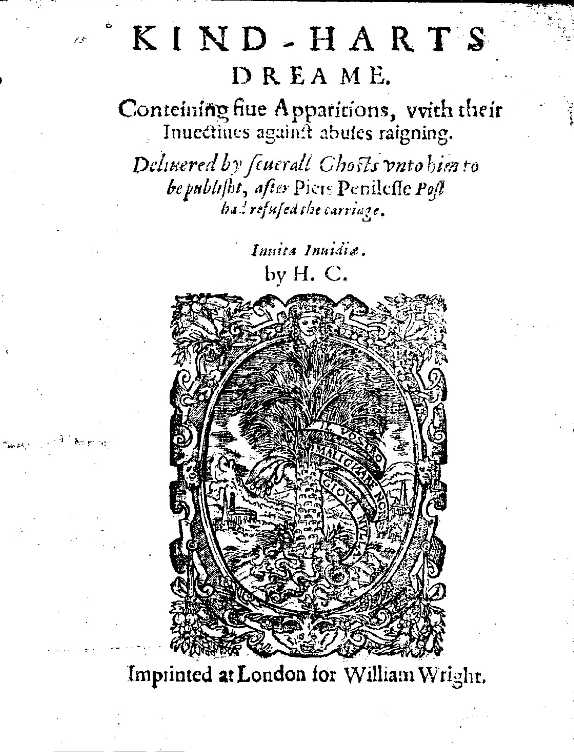|
University Wits
The University Wits is a phrase used to name a group of late 16th-century English playwrights and pamphleteers who were educated at the universities (Oxford or Cambridge) and who became popular secular writers. Prominent members of this group were Christopher Marlowe, Robert Greene, and Thomas Nashe from Cambridge, and John Lyly, Thomas Lodge, and George Peele from Oxford. Thomas Kyd is also sometimes included in the group, though he was not from either Oxford or Cambridge. This diverse and talented loose association of London writers and dramatists set the stage for the theatrical Renaissance of Elizabethan England. They are identified as among the earliest professional writers in English, and prepared the way for the writings of William Shakespeare, who was born just two months after Marlowe. The University Wits, on leaving their universities faced the Elizabethan problem discussed by Francis Bacon in his essay, "Of Seditions and Troubles" — schools were producing more sch ... [...More Info...] [...Related Items...] OR: [Wikipedia] [Google] [Baidu] |
Marlowe Portrait
The putative Marlowe portrait is an unsigned portrait on wooden panel, dated 1585, which was discovered in 1952 or 1953 at Corpus Christi College, Cambridge. It has been proposed that the portrait depicts the English playwright Christopher Marlowe (1564–1593), though several scholars have suggested that this is unlikely. Discovery The painting was discovered in Corpus Christi College, Cambridge, in 1952 or 1953. Contradictory accounts of its discovery exist. One account dates the discovery of the portrait to late 1952, during major renovations to the college's Old Court which destroyed many ancient interiors. The wood panels had been used to support a gas heater installed in a student's room, above the room that had been assigned to Marlowe 370 years earlier. When a new heater was installed, the panels were discarded and put in a skip. The room's occupant recovered them for reuse, but noticed the dirty and badly-damaged portrait and took the pieces to the college libra ... [...More Info...] [...Related Items...] OR: [Wikipedia] [Google] [Baidu] |
George Saintsbury Lafayette
George may refer to: Names * George (given name) * George (surname) People * George (singer), American-Canadian singer George Nozuka, known by the mononym George * George Papagheorghe, also known as Jorge / GEØRGE * George, stage name of Giorgio Moroder * George, son of Andrew I of Hungary Places South Africa * George, South Africa, a city ** George Airport United States * George, Iowa, a city * George, Missouri, a ghost town * George, Washington, a city * George County, Mississippi * George Air Force Base, a former U.S. Air Force base located in California Computing * George (algebraic compiler) also known as 'Laning and Zierler system', an algebraic compiler by Laning and Zierler in 1952 * GEORGE (computer), early computer built by Argonne National Laboratory in 1957 * GEORGE (operating system), a range of operating systems (George 1–4) for the ICT 1900 range of computers in the 1960s * GEORGE (programming language), an autocode system invented by Charles Leonard Hambli ... [...More Info...] [...Related Items...] OR: [Wikipedia] [Google] [Baidu] |
English Male Poets
English usually refers to: * English language * English people English may also refer to: Culture, language and peoples * ''English'', an adjective for something of, from, or related to England * ''English'', an Amish term for non-Amish, regardless of ethnicity * English studies, the study of English language and literature Media * ''English'' (2013 film), a Malayalam-language film * ''English'' (novel), a Chinese book by Wang Gang ** ''English'' (2018 film), a Chinese adaptation * ''The English'' (TV series), a 2022 Western-genre miniseries * ''English'' (play), a 2022 play by Sanaz Toossi People and fictional characters * English (surname), a list of people and fictional characters * English Fisher (1928–2011), American boxing coach * English Gardner (born 1992), American track and field sprinter * English McConnell (1882–1928), Irish footballer * Aiden English, a ring name of Matthew Rehwoldt (born 1987), American former professional wrestle ... [...More Info...] [...Related Items...] OR: [Wikipedia] [Google] [Baidu] |
Literature Of England
The literature of England is literature written in what is now England, or by English writers. It consists mainly of English literature - i.e. literature written in the English language - but there are important examples of literature from England written in other languages. Anglo-Latin literature This consists of a number of principally ecclesiastical and historical works, spanning a period of over a thousand years. Bede's ''Historia ecclesiastica gentis Anglorum'' is a notable example. Several more recent examples exist of English works written originally in Latin: ''Utopia'' (1516) by Sir Thomas More, for example, and ''New Atlantis'', a utopian narrative by Sir Francis Bacon, published in Latin (as ''Nova Atlantis'') in 1624 and in English in 1627. Sir Isaac Newton also produced the '' Principia'', among other works, in Latin. Anglo-Norman literature This consists of medieval literature in the Anglo-Norman tongue, and also in French. The French epic appeared in England at ... [...More Info...] [...Related Items...] OR: [Wikipedia] [Google] [Baidu] |
University Wits
The University Wits is a phrase used to name a group of late 16th-century English playwrights and pamphleteers who were educated at the universities (Oxford or Cambridge) and who became popular secular writers. Prominent members of this group were Christopher Marlowe, Robert Greene, and Thomas Nashe from Cambridge, and John Lyly, Thomas Lodge, and George Peele from Oxford. Thomas Kyd is also sometimes included in the group, though he was not from either Oxford or Cambridge. This diverse and talented loose association of London writers and dramatists set the stage for the theatrical Renaissance of Elizabethan England. They are identified as among the earliest professional writers in English, and prepared the way for the writings of William Shakespeare, who was born just two months after Marlowe. The University Wits, on leaving their universities faced the Elizabethan problem discussed by Francis Bacon in his essay, "Of Seditions and Troubles" — schools were producing more sch ... [...More Info...] [...Related Items...] OR: [Wikipedia] [Google] [Baidu] |
Renaissance
The Renaissance ( , ) is a Periodization, period of history and a European cultural movement covering the 15th and 16th centuries. It marked the transition from the Middle Ages to modernity and was characterized by an effort to revive and surpass the ideas and achievements of classical antiquity. Associated with great social change in most fields and disciplines, including Renaissance art, art, Renaissance architecture, architecture, politics, Renaissance literature, literature, Renaissance exploration, exploration and Science in the Renaissance, science, the Renaissance was first centered in the Republic of Florence, then spread to the Italian Renaissance, rest of Italy and later throughout Europe. The term ''rinascita'' ("rebirth") first appeared in ''Lives of the Artists'' () by Giorgio Vasari, while the corresponding French word was adopted into English as the term for this period during the 1830s. The Renaissance's intellectual basis was founded in its version of Renaiss ... [...More Info...] [...Related Items...] OR: [Wikipedia] [Google] [Baidu] |
Henry Chettle
Henry Chettle () was an English dramatist and miscellaneous writer of the Elizabethan era, best known for his pamphleteering. Early life The son of Robert Chettle, a London dyer, he was apprenticed in 1577 and became a member of the Stationer's Company in 1584, traveling to Cambridge on their behalf in 1588. His career as a printer and author is shadowy. He may have set up some of the tracts printed in response to Martin Marprelate. In 1591, he entered into partnership with William Hoskins and John Danter, two stationers. They published a good many ballads, and some plays, including a surreptitious and botched first quarto of ''Romeo and Juliet'', to which it is suggested Chettle added lines and stage directions. ''The Groat's-Worth of Wit'' In 1592 '' Greene's Groats-Worth of Wit'', supposedly the work of the recently deceased, and very popular, Robert Greene, was published, having been entered in the register of the Stationer's Company "at the peril of Henry Chettle". T ... [...More Info...] [...Related Items...] OR: [Wikipedia] [Google] [Baidu] |
Greene's Groats-Worth Of Wit
''Greenes, Groats-worth of Witte, bought with a million of Repentance'' (1592) is a tract published as the work of the Elizabethan author Robert Greene. It was published as a short book or pamphlet, a form that was popular and which contributed to the lively intellectual life of the time. Greene's work is written as a moralistic tale, which, towards the end, is revealed to have been autobiographical. During the course of the story characters introduce song lyrics, fables, and some sharp and resentful criticisms of actors and playwrights. It appears to have been written with the idea that the contemporary reader would try to figure out which actual persons are being represented and satirised by the characters in the story. The pamphlet is most famous for a passage which appears to allude to William Shakespeare, who was then starting out on his career as an actor and playwright. The main body of the text is an account of the visit of two brothers, Roberto and Lucanio, to th ... [...More Info...] [...Related Items...] OR: [Wikipedia] [Google] [Baidu] |
Allardyce Nicoll
John Ramsay Allardyce Nicoll (28 June 1894 – 17 April 1976) was a Scottish literary scholar and teacher. Allardyce Nicoll was born in Partick, Glasgow, and educated at Stirling High School and the University of Glasgow, where he was the G. A. Clark scholar in English. He became a lecturer at King's College London in 1920 and took the chair of English at East London College (later Queen Mary's College) in 1923. In 1933 he went to Yale University as professor of the history of drama and dramatic criticism and chair of the drama department. He established a strong graduate programme in theatre history. Around 1943–45 he performed war work at the British embassy in Washington. From 1945 to 1961 he headed the English Department at the University of Birmingham; from 1951 to 1961 he was also founding director of the Shakespeare Institute at Birmingham. He served as president of the Society for Theatre Research from 1958 to 1976. Research His major work was his six-volume ''Histor ... [...More Info...] [...Related Items...] OR: [Wikipedia] [Google] [Baidu] |
Adolphus William Ward
Sir Adolphus William Ward (2 December 1837 – 19 June 1924) was an English historian and man of letters. Life Ward was born at Hampstead, London, the son of John Ward. He was educated in Germany and at Peterhouse, Cambridge. In 1866, Ward was appointed professor of history and English literature in Owens College, Manchester, and was principal from 1890 to 1897, when he retired. He took an active part in the foundation of Victoria University, of which he was vice-chancellor from 1886 to 1890 and from 1894 to 1896, He was elected to membership of the Manchester Literary and Philosophical Society on 5.3.1985 and he was a founder of Withington Girls' School in 1890. He was a Member of the Chetham Society, serving as a member of council from 1884 and as president from 1901 until 1915. In 1897, the freedom of the city of Manchester was conferred upon him, he delivered the Ford Lectures at the University of Oxford in 1898, and on 29 October 1900 he was elected master of Peter ... [...More Info...] [...Related Items...] OR: [Wikipedia] [Google] [Baidu] |
Blank Verse
Blank verse is poetry written with regular metre (poetry), metrical but rhyme, unrhymed lines, usually in iambic pentameter. It has been described as "probably the most common and influential form that English poetry has taken since the 16th century", and Paul Fussell has estimated that "about three quarters of all English poetry is in blank verse". The first known use of blank verse in English was by Henry Howard, Earl of Surrey in his translation of the ''Æneid, Aeneid'' (composed ; published posthumously, 1554–1557). He may have been inspired by the Latin original since classical Latin verse did not use rhyme, or possibly he was inspired by Ancient Greek verse or the Italian language, Italian verse form of ', both of which also did not use rhyme. The play ''Arden of Faversham'' (around 1590 by an unknown author) is a notable example of End-stopping, end-stopped blank verse. In English The 1561 play ''Gorboduc (play), Gorboduc'' by Thomas Norton and Thomas Sackville, 1st E ... [...More Info...] [...Related Items...] OR: [Wikipedia] [Google] [Baidu] |






